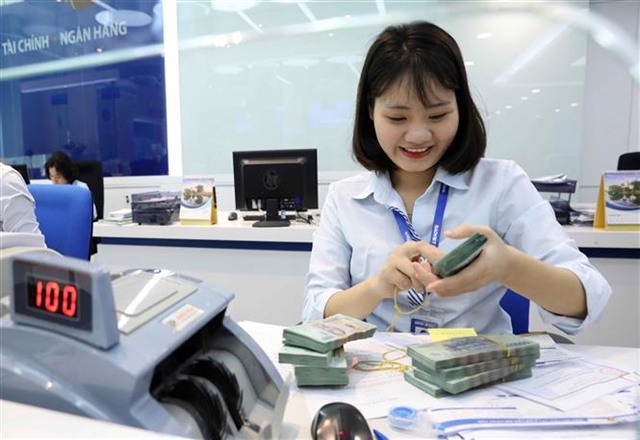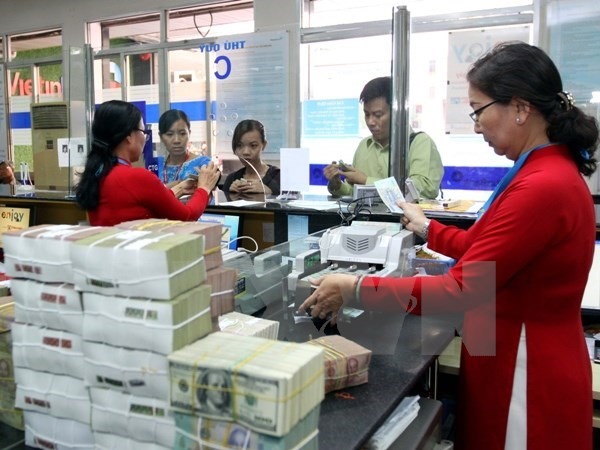 Economy
Economy

Prime Minister Nguyễn Xuân Phúc has asked authorities to take more drastic measures to rectify the late disbursement of investment capital for public projects, given that less than one-fourth of the funds has been disbursed.
 |
| Prime Minister Nguyễn Xuân Phúc has asked authorities to take more drastic measures to rectify the late disbursement of investment capital for public projects, given that less than one-fourth of the funds has been disbursed. — VNA/VNS Photo |
HÀ NỘI — Prime Minister Nguyễn Xuân Phúc has asked authorities to take more drastic measures to rectify the late disbursement of investment capital for public projects, given that less than one-fourth of the funds has been disbursed.
The PM said the heads of agencies and localities will have to take responsibility for such delays.
Minister and Chairman of the Government Office Mai Tiến Dũng conveyed the PM’s directive at a meeting on Tuesday between the PM Working Group and leaders of 13 ministries and provinces reporting slow disbursement of public investment in 2017.
If the disbursement is not improved by October, the PM will consider transferring the funds to other ministries and localities, Dũng warned.
He noted that slow disbursement of public investment leads to a bottleneck in national economic growth, adding that absent an urgent solution to accelerate the disbursement, economic growth will suffer and public debt will grow.
Dũng added that slow disbursement of public investment was due in large part to lack of proper direction by heads of ministries and localities, in addition to inadequacies of related procedures, slow land clearance and limited capacity of project contractors.
The PM will directly inspect a number of projects experiencing slow disbursement or slow implementation progress next month, he said.
Dũng instructed relevant authorities to review all public projects, from investment procedures to choosing contractors, and take drastic measures to improve land clearance tasks.
At the meeting, Minister Dũng also conveyed the PM’s criticism of ministers and heads of People’s Committees of 13 provinces regarding the slow disbursement of public investment in 2017.
The list of ministries and localities reporting slow disbursement includes the Ministry of Planning and Investment, the Ministry of Foreign Affairs, the Ministry of Health, the State Bank of Việt Nam and the cities of Hà Nội, HCM City and Đà Nẵng.
The PM Working Group report showed that over VNĐ357 trillion (US$15.7 billion) was to be allocated for development investment in 2017, including VNĐ307 trillion from the State budget and VNĐ50 trillion from Government bonds.
However, only VNĐ85 trillion ($3.74 billion) had been disbursed by June 15, equivalent to 23.9 per cent of the year’s plan and 27.6 per cent of the target set by the National Assembly and the Prime Minister.
According to the report, the Ministry of Planning and Investment disbursed nearly VNĐ54.37 billion ($2.37 million) in public investment capital by June, equivalent to 13.3 per cent of the yearly plan. The slow disbursement involved two main projects - building an Institute of Policy and Development with a total investment capital of VNĐ202 billion ($8.9 million) and a project to apply e-commerce in Government purchases based on a Public-Private-Partnership model worth VNĐ26 billion.
The slow disbursement was blamed on the Ministry of Construction’s slow progress in appraising construction drawings and the total estimated cost of the project, while the e-commerce project has not yet chosen a contractor, according to the Planning and Investment Ministry.
The Ministry of Health was reported to have disbursed VNĐ831 billion ($36.6 million), or 16.2 per cent of the yearly plan. This was attributed to slow disbursement for two projects to build second facilities for Bạch Mai and Việt Đức hospitals, with a total investment capital of VNĐ3.2 trillion ($140 million).
These two large, complicated projects require engineering, procurement and construction (EPC) contracts, and the process of appraising and approving designs and cost estimates has taken a long time,leading to delayed implementation and disbursement, according to the Health Ministry. — VNS